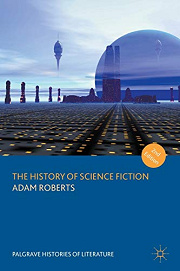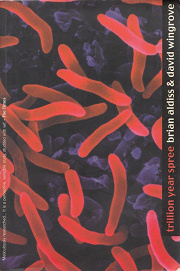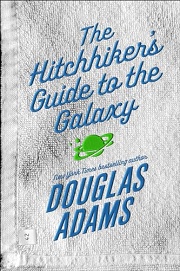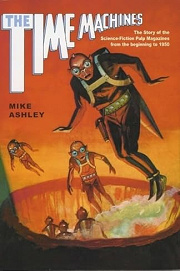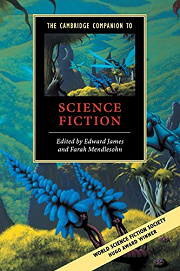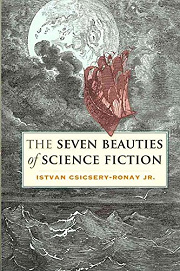Share your thoughts in a quick Shelf Talk!
The History of Science Fiction by Adam Roberts
From early voyages to futures yet to come, this sweeping survey charts how speculative stories evolved—and why they matter. Smart, witty, and packed with connections, The History of Science Fiction is a guided tour for readers who love tracing today’s big ideas back to their starry origins.
Have you read this book? Share what you liked (or didn’t), and we’ll use your answers to recommend your next favorite read!
Love The History of Science Fiction but not sure what to read next?
These picks are popular with readers who enjoyed this book. Complete a quick Shelf Talk to get recommendations made just for you! Warning: possible spoilers for The History of Science Fiction below.
In The History of Science Fiction, did you enjoy ...
... the sweeping, centuries-spanning survey of the genre’s evolution?
Trillion Year Spree: The History of Science Fiction by Brian W. Aldiss and David Wingrove
If you relished how The History of Science Fiction strides from Mary Shelley through Gernsback and Campbell to the New Wave, cyberpunk, and global SF, you’ll love Aldiss’s panoramic tour. It revisits many of the same milestones Roberts unpacks—Shelley’s foundational spark, Wells and Verne’s machinery of ideas, the magazine era’s gatekeeping, and the shock of Moorcock’s and Ballard’s New Wave—while adding Aldiss’s own sharp, often contrarian insights about where the field came from and why it keeps reinventing itself.
... the wry, erudite humor and genre in-jokes threaded through Roberts’s commentary?
The Hitchhiker's Guide to the Galaxy by Douglas Adams
Roberts’s dry asides about Gernsbackian prose, Campbellian certainties, and the genre’s habit of sending stoic heroes into absurd situations suggest you’ll appreciate Adams’s deadpan demolition of SF’s tropes. If you grinned when Roberts skewered earnest spacefaring optimism or nodded at his New Wave anecdotes, Arthur Dent’s improbable escape from Earth, the Babel fish’s "proof" of God’s nonexistence, and Zaphod’s gleeful nihilism will hit the same satirical sweet spot.
... the clear, chronological walk through the pulp roots Roberts maps out?
Time Machines: The Story of the Science-Fiction Pulp Magazines from the Beginning to 1950 by Mike Ashley
If the straight-ahead timeline in Roberts’s book—from Amazing Stories and Gernsback to Campbell’s Astounding—was your favorite throughline, Ashley’s meticulous chronicle is a treasure. You’ll get the day-by-day feel for editorial shifts Roberts highlights (Gernsback’s didactic gadgets, Campbell’s hardening of standards), plus deep context on authors he name-checks—like E. E. "Doc" Smith and C. L. Moore—as the magazine ecosystem that birthed modern SF takes shape issue by issue.
... the rigorous, essay-driven analysis of movements and subgenres?
The Cambridge Companion to Science Fiction by Edward James and Farah Mendlesohn
Loved how Roberts pivots from plot summary to argument—linking Wells’s scientific romances to later dystopias, or tracing how cyberpunk reframed New Wave concerns? This collection delivers that same heady payoff. Essays unpack many of the nodes Roberts discusses—utopias and dystopias, feminist SF after Le Guin and Butler, space opera’s resurgence—so you can drill deeper into the ideas behind the historical beats you enjoyed.
... the big-idea theorizing beneath the historical narrative?
The Seven Beauties of Science Fiction by Istvan Csicsery-Ronay Jr.
If Roberts’s chapters got you pondering what SF actually does—from Wells’s thought experiments to the New Wave’s inner-space and the allegorical edge in writers like Lem and the Strugatskys—this book turns those musings into a framework. Csicsery-Ronay dissects SF’s signature moves (estrangement, technologiés du merveilleux, world-building as argument) so the patterns Roberts illustrates with examples—from Shelley to cyberpunk—snap into philosophical focus.
Unlock your personalized book recommendations! Just take a quick Shelf Talk for The History of Science Fiction by Adam Roberts. It’s only a few questions and takes less than a minute.
